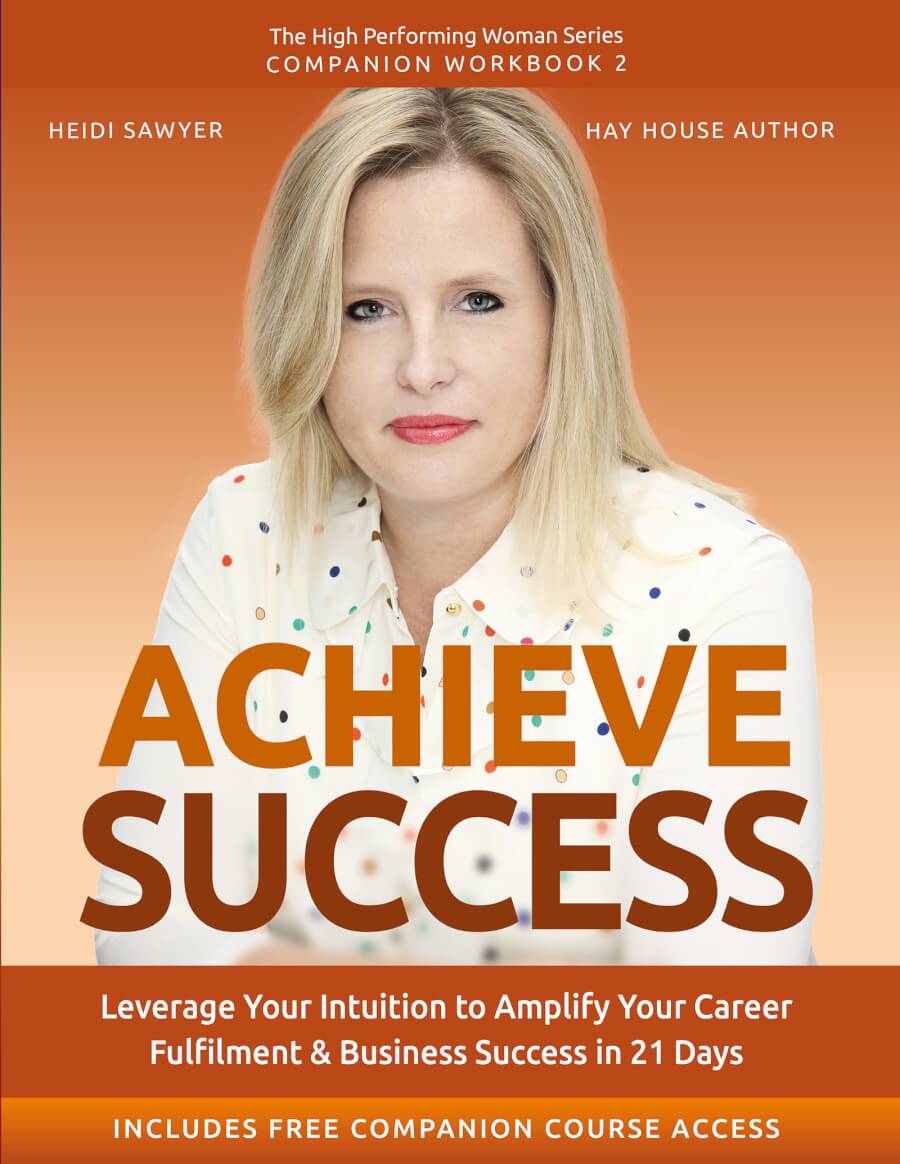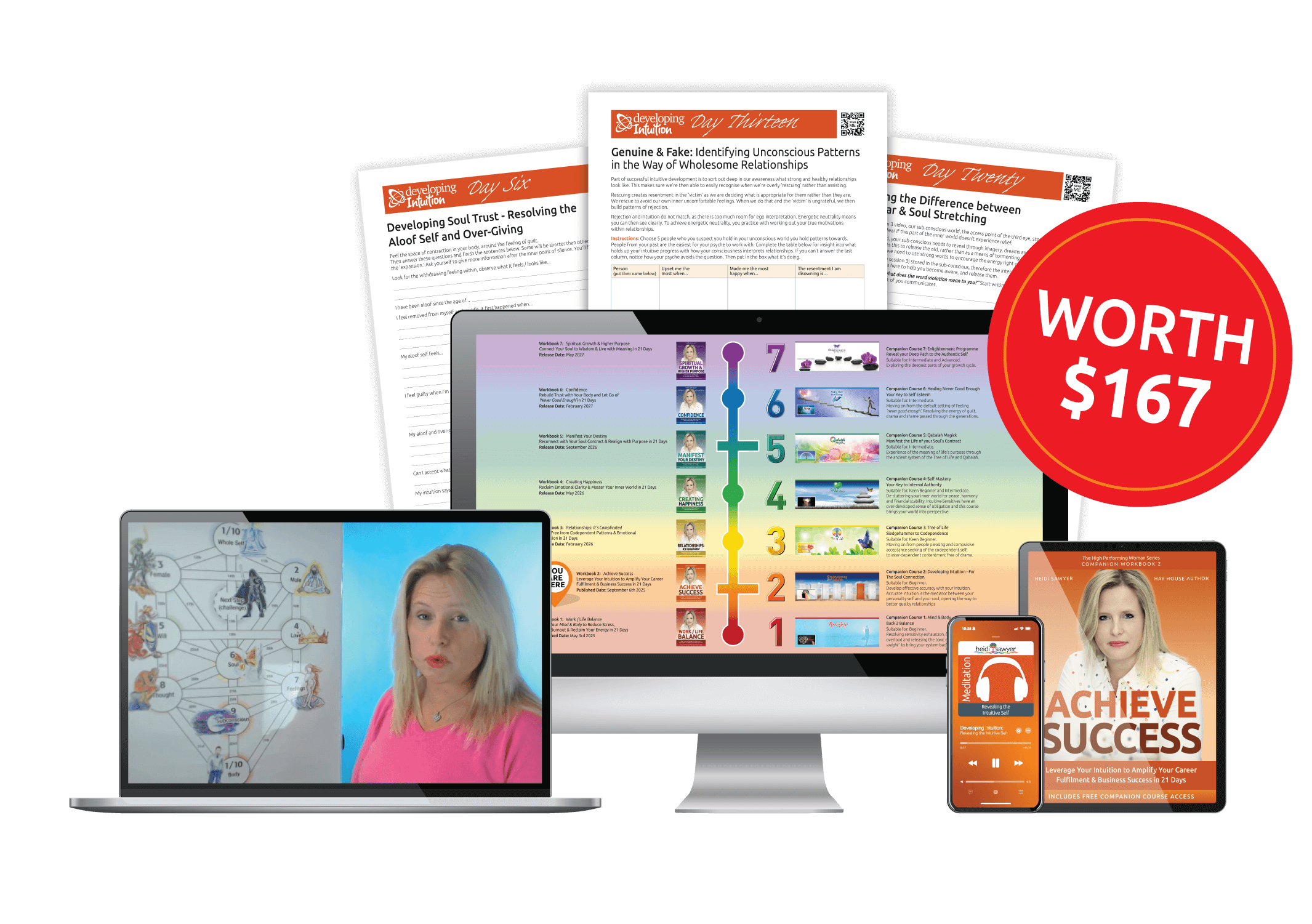
You don’t need to look very far to find people who equate guilt with being good.
You say “no,” and the guilt creeps in.
You choose to rest and the guilt whispers, “Shouldn’t you be doing something?”
You make a decision that honours your energy, and yet still… guilt.
What’s happening here?
The guilt isn’t evidence that you’ve done something wrong.
It’s often just a byproduct of emotional growth, a sign that you’ve stepped outside an outdated emotional pattern, one your system has clung to in order to feel safe and accepted.
But here’s the twist: guilt is not the same as regret.
Regret feels more grounded. It gives you information and often comes with clarity.
Guilt, on the other hand, feels foggy. It clings to you even when there’s no real cause. It’s the emotional residue of past programming, often designed to keep you small, quiet or overly accommodating.
In many cases, guilt shows up precisely because you’ve done the right thing, not the wrong one.
The moment you start saying “no” without explanation…
The moment you choose rest over productivity…
The moment you take yourself seriously…
That’s when the guilt is loudest.
Not because you’re bad, but because you’re evolving.
That’s why in Day 4 of the Mind & Body Workbook, we explore this specific guilt pattern. And for good reason: if left unchecked, it will erode your decision-making, skew your boundaries and rob you of self-trust.
This is especially true if you’ve been the go-to emotional caretaker for others. The guilt becomes the glue that keeps you stuck in a role you’ve long outgrown.
But guilt is not the voice of truth.
It’s the echo of an old rulebook.
And it’s time to write a new one.
You’ve been exploring the Week 1 theme of Emotional Boundaries inside the Mind & Body Workbook.
Today’s reflection, paired with the Day 4 video and journaling prompt, is designed to help you decode one of the most confusing emotional signals: guilt.
In the video, I explain how guilt can often masquerade as intuition and how to tell the difference. Make sure to revisit your Day 4 page and write your prompt answer now, while this idea is fresh.
Lady Gaga once described the overwhelming guilt she felt while trying to live a life that wasn’t hers. In interviews, she’s spoken about trying to please everyone: managers, the media, fans, until she could barely hear herself think.
She described feeling guilty for wanting rest, space, creative control. She had the success… but not the peace.
What helped her reclaim her identity?
Learning to separate guilt from guidance.
In her words:
“If I’m not honest about what I need, I betray myself. That’s the real guilt.”
— Lady Gaga
Her story is a powerful reminder that just because guilt shows up, this doesn’t mean you’ve done something wrong. Often, it means you're finally doing something right.
Just because you felt guilty, this doesn’t mean you were wrong. What’s one moment where you wish you had trusted your inner “no”?
Share your thoughts with me inside the Facebook Group, this is a safe space where your story helps others realise they’re not alone → Join the Conversation


This article is part of our Emotional Wealth Series, where we explore the connection between boundaries, self-worth, and energetic wellbeing.
Already have your copy? Turn to Day 4 in your Mind & Body Workbook. Watch the Day 4 video and complete your journal prompt on guilt and the energy it’s cost you.
Don’t have a copy? This is where your deeper clarity begins.



Each workbook is paired with a companion course.
In Week 1, you’ll explore how the body stores emotions, and how to stop absorbing what’s not yours.
Find the secret link on Page 7 of the workbook to unlock your free companion course (normally sold for £197. It’s free to you when you invest in the workbook above.)


Each week, we meet inside the private group. Heidi is live during Power Hour to answer your questions and explore what surfaced.
You don’t need to “know the right thing to say.” You just need to show up.
SHARE + CONNECT with Heidi
.jpg)
.png)